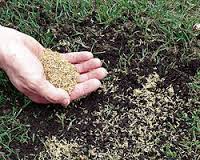
AUTUMN TREES & SHRUBS PLANTING
Fall officially starts on September 21, but the autumn planting season in our area begins in early September as temperatures drop and conditions become favorable for planting.
Trees planted in the autumn have a major obstacle they must overcome. In a short period of time the ground will freeze and root development will come to a halt until next spring.
To help roots prepare for winter, trees and shrubs should be planted before October 1st, which is six to eight weeks before the ground freeze occurs in our areas. This gives the root systems time to adjust before the ground is frozen in mid-November.
When you plant take the time and give your trees every advantage you can. Research your tree to see if it has ‘special’ requirements such as soil and location.
Always make sure you break open the root ball. This will enable the roots to spread out in search of water and nutrients.
Trees planted in autumn need regular watering for the first few weeks. Newly planted shrubs struggle to get water from the ground to the tips. Watering will help your plants achieve this major function.
Mulching in autumn is also essential. While mulch is important in spring and summer to suppress weeds and control moisture, mulching in the winter keeps the ground frozen. When the ground thaws during winter warm spells, it can spark new growth which is then subject to damage when the ground refreezes. To avoid this problem plants are best mulched when the ground is first frozen in early winter.*
Conifers (evergreens) can be damaged by winter winds, snow and sun. Good planting practices will help these landscape plants survive the brutal months ahead.
You can help protect young evergreens by spraying them with an ‘anti-transpirant’ for extra protection from moisture loss and winter kill.
*Winter mulching is a good practice for spring flowering bulbs to stop them from breaking the ground early.
AUTUMN LAWN CARE
Reseeding and Lawn Renovation
No matter how beautiful your lawn is it will greatly benefit from autumn reseeding. All plants including grass have a certain life span. As the older grass dies away it leaves spots where weeds can take hold next spring. The best way to avoid that is with thick lush growth. Since we cut our lawns often, they are not able to reseed themselves.
This year the cool wet summer allowed fungus to take hold and kill large areas of lawns. That was followed by a hotter than normal summer. These conditions left many lawns with large dead patches and in need of ‘renovation’.
Thatch is dead grass that sits on the top of the soil at the base of the blades of grass. Although a small amount is not a problem, a large buildup of thatch should be removed. There are rental thatching machines that make this task much easier. In order for the seed to germinate it must make contact with the soil for the roots to take hold. Thatching, raking and aerating will greatly improve your success level.
September and early October is the perfect time to reseed or renovate your lawn. As the summer heat diminishes weeds and wildflowers begin to fade, dying back in the fields and on our lawns. This will give your grass seed plenty of space to germinate and grow without competition for sunlight, water and nutrients. The cooler weather will enable the young grass to become established before the frost sets in.
Grass seeds do like to be kept moist so a light watering when it is dry will be appreciated. Many people cover the grass seeds with ‘salt hay’. Salt hay looks like straw but it’s weed seeds need salt water so they do not germinate on fresh water lawns.
Established lawns require one inch of water a week. More water than that is harmful, producing weak root systems and encouraging fungus and diseases. Many folks mistakenly water late in the day or early evening. This practice allows water to sit on the lawn overnight promoting disease and fungus.
The best watering practice to do it early in the morning so the water has time to be absorbed or evaporate before evening.
September seeding will also give your young grass a few weeks to sprout before the leaves fall, blocking the greatly needed sunlight.
There is far too much information to give in this article, from how and when to thatch, to seed selection.
Luckily for us ‘Rutgers Cooperative Extension of Union County will supply this information free of cost.
The Helpline office also sells Soil Test Kits. This $20 kit will give you valuable information on your soil and how to improve it. Without the proper Ph, grass as well as other plants are not able to utilize the minerals and nutrients they require for healthy growth.
Call before going to the office in Westfield to make sure someone is there to help you. With Covid still a concern the office is often closed.
Heads up… Rutgers accepts cash or checks only, no credit cards.
You can call the Garden Helpline at 908-654-9852, or write to them at Mastergardeners@ucnj.org
Happy Autumn,
James


